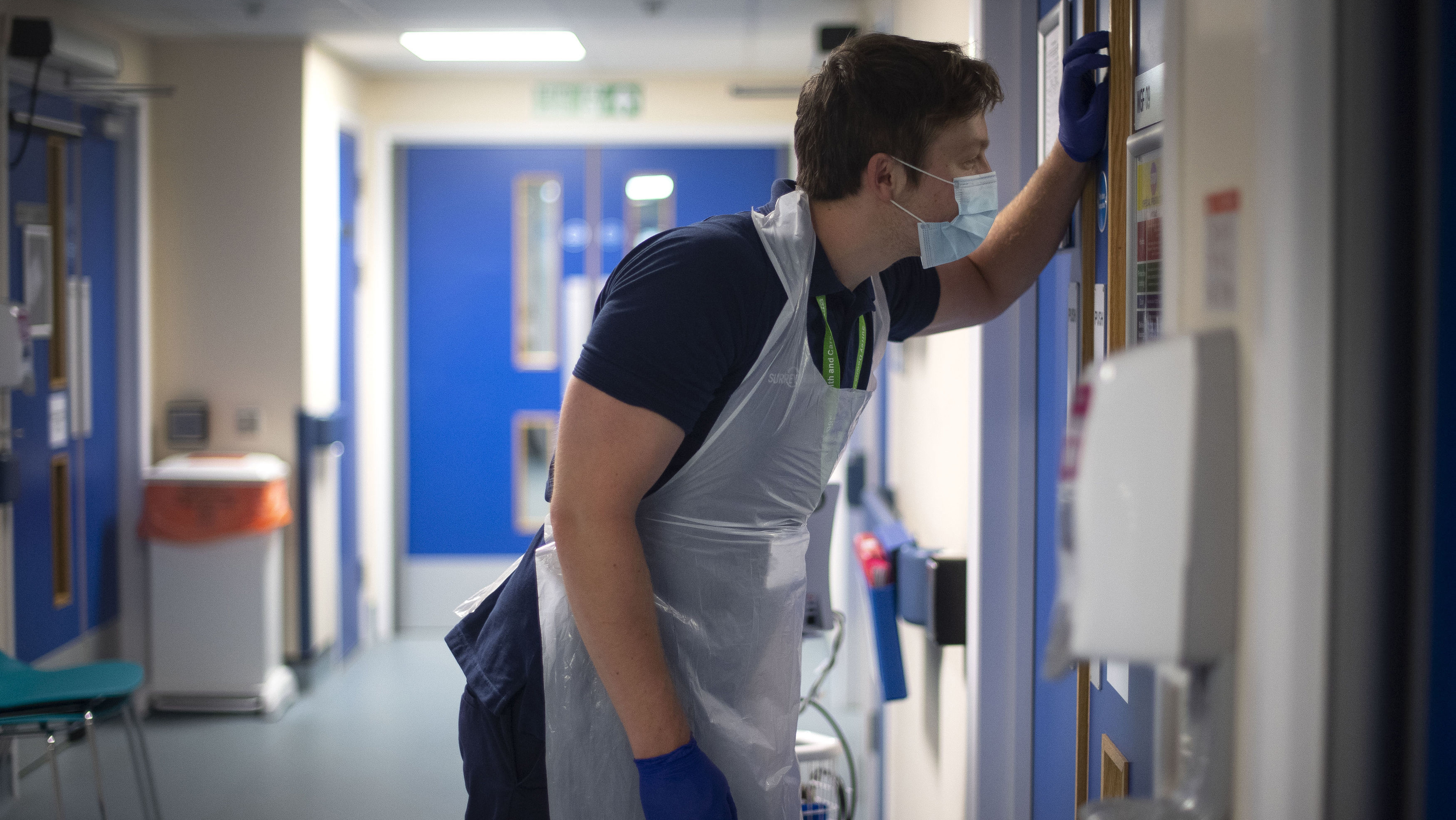Coronavirus can spread through hospital ward ‘in ten hours’
Researchers tracked how virus travelled more than 260ft from single spot in isolation room

A free daily email with the biggest news stories of the day – and the best features from TheWeek.com
You are now subscribed
Your newsletter sign-up was successful
Coronavirus can spread throughout a hospital ward from a single spot in just ten hours and then linger for at least five days, a new study shows.
Researchers from University College Hospital (UCL) and Great Ormond Street Hospital tested the potential spread of Covid-19 by leaving a millilitre of water containing a section of DNA from a non-contagious virus on a bed in an isolation room, used for high-risk or infected patients.
After ten hours, the virus was detected in 41% of samples taken across the hospital ward, “including bed rails, door handles, arm rests in a waiting room and children’s toys and books”, reports The Times.
The Week
Escape your echo chamber. Get the facts behind the news, plus analysis from multiple perspectives.

Sign up for The Week's Free Newsletters
From our morning news briefing to a weekly Good News Newsletter, get the best of The Week delivered directly to your inbox.
From our morning news briefing to a weekly Good News Newsletter, get the best of The Week delivered directly to your inbox.
And within five days, it could be detected on up to 86% of sites on the ward and had travelled more than 260ft (79 metres), The Telegraph says.
Study co-author Dr Lena Ciric, an environmental microbiologist at UCL, said the virus DNA - added to the water at a similar concentration to coronavirus DNA found in patient samples - was spread through “the touching of surfaces by staff, patients and visitors”.
The findings show “the important role that surfaces play in the transmission of a virus and how critical it is to adhere to good hygiene and cleaning”, she added, pointing out a person infected with Covid-19 may also spread the infection by coughing and sneezing.
–––––––––––––––––––––––––––––––For a round-up of the most important stories from around the world - and a concise, refreshing and balanced take on the week’s news agenda - try The Week magazine. Start your trial subscription today –––––––––––––––––––––––––––––––
A free daily email with the biggest news stories of the day – and the best features from TheWeek.com
The research, outlined in a newly published paper in the Journal of Hospital Infection, did not determine how likely it was that someone would be infected from the amount of the viral DNA found on the surfaces.
A previous study published in the New England Medical Journal that investigated how long Covid-19 could survive on various services found that the virus could still be detected on plastic and stainless steel after 72 hours.
However, the quantity of the virus present “dropped rapidly over time”, according to The Guardian.
-
 5 blacked out cartoons about the Epstein file redactions
5 blacked out cartoons about the Epstein file redactionsCartoons Artists take on hidden identities, a censored presidential seal, and more
-
 How Democrats are turning DOJ lemons into partisan lemonade
How Democrats are turning DOJ lemons into partisan lemonadeTODAY’S BIG QUESTION As the Trump administration continues to try — and fail — at indicting its political enemies, Democratic lawmakers have begun seizing the moment for themselves
-
 ICE’s new targets post-Minnesota retreat
ICE’s new targets post-Minnesota retreatIn the Spotlight Several cities are reportedly on ICE’s list for immigration crackdowns
-
 A Nipah virus outbreak in India has brought back Covid-era surveillance
A Nipah virus outbreak in India has brought back Covid-era surveillanceUnder the radar The disease can spread through animals and humans
-
 A real head scratcher: how scabies returned to the UK
A real head scratcher: how scabies returned to the UKThe Explainer The ‘Victorian-era’ condition is on the rise in the UK, and experts aren’t sure why
-
 How dangerous is the ‘K’ strain super-flu?
How dangerous is the ‘K’ strain super-flu?The Explainer Surge in cases of new variant H3N2 flu in UK and around the world
-
 Covid-19 mRNA vaccines could help fight cancer
Covid-19 mRNA vaccines could help fight cancerUnder the radar They boost the immune system
-
 The ‘menopause gold rush’
The ‘menopause gold rush’Under the Radar Women vulnerable to misinformation and marketing of ‘unregulated’ products
-
 The new Stratus Covid strain – and why it’s on the rise
The new Stratus Covid strain – and why it’s on the riseThe Explainer ‘No evidence’ new variant is more dangerous or that vaccines won’t work against it, say UK health experts
-
 Private equity firms might be causing more deaths in hospital ERs
Private equity firms might be causing more deaths in hospital ERsThe Explainer Deaths in ERs purchased by private equity firms rose 13%
-
 RFK Jr. vaccine panel advises restricting MMRV shot
RFK Jr. vaccine panel advises restricting MMRV shotSpeed Read The committee voted to restrict access to a childhood vaccine against chickenpox